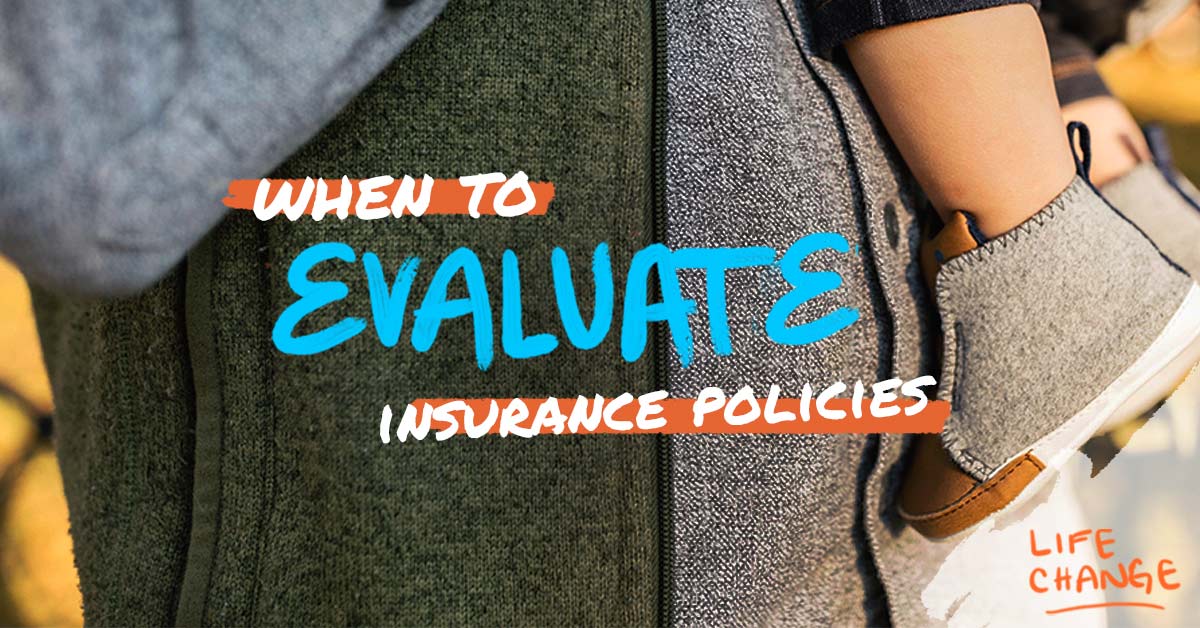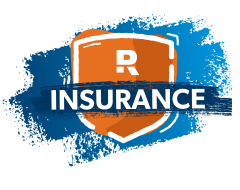When to Evaluate Your Insurance: 10 Life Changes That Say It's Time
9 Min Read | Mar 5, 2025

If you’re like most people, you buy insurance and don’t think about it again until the day you need it. That’s a big mistake! As the years go on, your life changes. You might get married, have a baby, take a different job, or finish renovation projects on your house. And your insurance policies should change when your life does.
To keep from being underinsured or overpaying the insurance company hundreds of dollars every year, it’s a good idea to evaluate your insurance policy with an independent insurance agent at least once a year. Here are 10 of the most common reasons you should give your insurance policy another look.
10 Life Changes That Mean It’s Time to Evaluate Your Insurance Policy
1. You just got married.
Insurance to Evaluate: Auto, Homeowner’s/Renter’s, Health and Life
- Auto Insurance
Can you really save money on car insurance after you get married? You sure can. And what’s more romantic than saving money? When you call to combine policies, your car insurance rates could go down by about 6%, which comes out to about $96 a year.1
- Homeowner’s/Renter’s Insurance
When you get married, you pile all your possessions under one roof. The more stuff you own, the more coverage you’ll need in your homeowner’s or renter’s insurance policy. To make sure you’ve got enough insurance for all your belongings, take inventory together and update your policy.
- Health Insurance
Another way you and your spouse could save money is to combine health insurance plans, which you can do during open enrollment or at the time of a qualifying life event—like getting married. Talk to your insurance agent to find out which option—being on the same policy or keeping them separate—makes the most sense for you both.
- Life Insurance
We know you just started your life together, and you don’t want to imagine it any other way. But if a tragedy happens, you don’t want to leave your surviving spouse unsupported. If you didn’t have life insurance while you were single, get it now. Once you do, you’ll have the security of knowing your family will be covered financially if something were to happen to either of you. And if you did have life insurance while you were single, make sure to reevaluate your life insurance needs and add your spouse.
2. You bought a house.
Insurance to Evaluate: Auto and Homeowner’s
- Auto Insurance
If your insurance company gives you the option of bundling auto and homeowner’s coverage, you could save around 5–10% on your premium.2 Once you’ve moved into your new place, ask your insurance company if they offer discounts for customers who buy multiple types of coverage.
- Homeowner’s Insurance
Speaking of bundling car and homeowner’s insurance, if you buy a house, you’ve got to have homeowner’s insurance. The last thing you want is to lose your home in a fire or tornado and realize you don’t have the money to repair or rebuild it. So, get that house insured before you move in.
3. Your family size changed.
Insurance to Evaluate: Health, Auto and Life
- Health Insurance
If you’re having a baby—congratulations! As soon as you know you’re pregnant, contact your health insurer and tell them you’re expecting. After your bundle of joy is born, you usually have 30 days to enroll your child on your plan.
- Auto Insurance
Maybe your family has been the same size for a while but the number of drivers in your family is changing. Your baby is all grown up and has a car insurance policy of their own now (yikes!). Find out from your insurance agent if adding another driver to your policy might score you a multi-car discount. And if your teen driver is an honor roll student, you can even score discounts for that too!
- Life Insurance
If you’ve had kids but haven’t updated your life insurance policy since you got married, it’s way past time to call your insurance agent! Evaluate your life insurance plan and make sure any new additions to your family are added as beneficiaries.
4. You got a raise.
Insurance to Evaluate: Life
- Life Insurance
Anytime your salary changes, you should evaluate your life insurance policy. We recommend you have 10–12 times your yearly salary in life insurance, which will leave your family plenty of support if something happens to you. And yes, a stay-at-home parent should have a life insurance policy taken out on them too.
5. You took a new job.
Insurance to Evaluate: Auto and Life
- Auto Insurance
Now, let’s be clear here: You don’t need to let your car insurance company know every time you land a new job. They aren’t your mama. But if you change careers, it might be worth talking to your agent. Military members, engineers, lawyers, scientists, teachers, doctors, law enforcement and firefighters sometimes qualify for an annual discount on car insurance. But if you’re not in one of these fields, don’t worry. As long as you’re a full-time employee, you’ll save roughly $14 more than those who are unemployed.3 Just another reason to land a job!
- Life Insurance
If that new job means you’re making a little extra cash every paycheck, remember to adjust your life insurance until you have 10–12 times your yearly salary. A new career might make your life insurance more expensive—but that’s only if it adds risk, like going from an office employee to a trapeze artist in a traveling circus. Hey—mid-life crises happen. We won’t judge.
Get trusted coverage that fits your budget.
When you work with a RamseyTrusted pro, you can feel confident knowing they’re going to find the best policy for you at the best price.
6. You bought a vehicle.
Insurance to Evaluate: Auto
- Auto Insurance
If you buy a vehicle, call your car insurance company with the make, model and vehicle identification number (VIN) of the new vehicle. Depending on the kind of car you buy, your insurance rate may go up or down. An independent agent can shop around for you so you can drive away with the best deal.
7. You purchased something expensive—and it’s not a house or car.
Insurance to Evaluate: Homeowner’s/Renter’s and Umbrella
- Homeowner’s/Renter’s Insurance
When you bought homeowner’s or renter’s insurance, you bought enough coverage for your belongings if they get lost, stolen or destroyed. Nope, you don’t have to update your insurance if you buy that new hairdryer you’ve been eyeing, but if you buy expensive items—cameras, computers, sporting equipment, instruments, jewelry, antiques, etc.—you should definitely evaluate your insurance coverage again.
- Umbrella Insurance
When you reach a net worth of about half a million, you may want to think about adding umbrella insurance (basically just extra liability coverage). An umbrella policy allows you to add $1 million in liability insurance on top of your current homeowner’s and auto insurance.
8. You renovated your property.
Insurance to Evaluate: Homeowner’s
- Homeowner’s Insurance
Anything that increases the value of your home—like a swimming pool, bathroom renovations or a front porch—calls for you to evaluate your insurance policy. And if you add gas detectors, smoke alarms or any new safety feature, your insurance rate might go down. For whatever projects you do, just call your insurance agent and take another look at your policy.
9. You’re driving less.
Insurance to Evaluate: Auto
- Auto Insurance
Working from home, living closer to your office, or joining a car pool will reduce your mileage. Car insurance companies consider less mileage the same as reduced risk, so a lot of companies will reward you with a cheaper rate for driving less. Score!
10. You’re retiring.
Insurance to Evaluate: Auto, Life and Long-Term Care
- Auto Insurance
When it comes to cheap car insurance, your 50s and early 60s are your golden years. But as you get closer to 70, annual premium rates begin to inch up.4 Some companies, however, specialize in car insurance for retirees. Before you retire, talk to your independent insurance agent and ask which company can serve you best.
- Life Insurance
Remember, the purpose of life insurance is to support your family financially if the unthinkable happens. That means, as you’re approaching retirement, you should look at your situation and decide if you still need it. If you’re debt-free, sitting on a net worth of half a million to $1.5 million, and your kids are self-sufficient, you probably don’t need life insurance anymore.A good question to ask yourself is: If I died, would my spouse be able to live comfortably off my retirement savings? If the answer is yes, you may not need to renew your life insurance policy.
- Long-Term Care Insurance
Over half the people turning 65 today will develop a severe disability that causes them to need long-term care.5 To protect your retirement savings, look into buying long-term care insurance. The best age to buy long-term care insurance is 60, since it’s pretty unlikely you’ll file a claim before then.
When Was the Last Time You Evaluated Your Insurance Policies?
Sure, these big life changes can tip you off that you need to evaluate your insurance—but what about things you’re not in the loop about? Like, maybe you have no idea the crime rate in your neighborhood went down and caused your homeowner’s insurance to drop. Or maybe there’s a better rate out there altogether. And on top of that, how can you be sure you’re getting the best deal on all your insurance needs?
Home and auto insurance aren’t just about low rates—they’re about the right coverage level. Talk to a trusted pro who can help you get both.
Easy! Work with a trusted independent insurance agent. You need an industry expert who has your best interests at heart on your side. And we know just the folks. Our RamseyTrusted pros will work with you to make sure you have the policies that fit your life now and help you think about the coverage you’ll need for the future. Find your RamseyTrusted pro today!
Do You Actually Have Enough Coverage?
Take the Coverage Checkup to get a personalized insurance action plan that guides your next steps so you can confidently check things off as you get covered.



